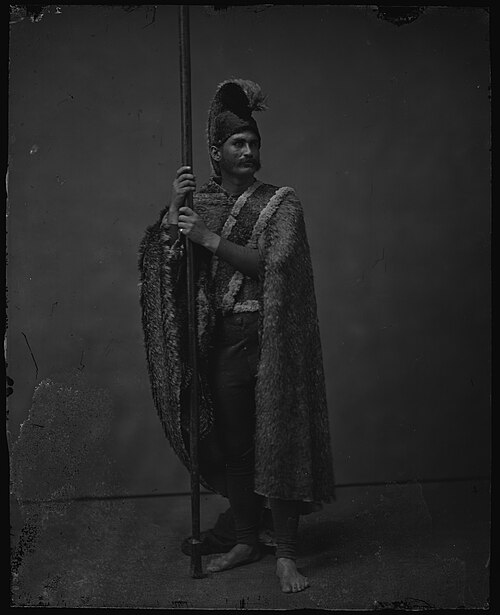
the only person ever photographed to wear hawai’is royal regalia (the feather helmet, King Kamehameha’s golden cloak, and the ancient sacred sash of King Liloa) died as a rancher on the big island during the territory of hawai’i. he and his brothers were the caretakers of the royal emblems
by Poiboykanaka808

10 Comments
the mahi’ole, all chiefs had and replicated the arches seen on the gods Ki’i (carvings representing them, like tiki)
the sash of liloa is as old as columbus, and during the reign of Kalakaua was kept safe under the queens bed
the golden cloak of kamehameha, it did not use the simply yellow of the o’o, but the golden hue of the mamo therefore known as the mamo cloak. but, that gold hid the deep red of the i’iwi, representing kuka’ilimoku, the god of war, while the golden colors were associated with lono, the god of peace
John Tamatoa baker was made governor of hawai’i island.
he was a member of the privy council and house of representatives for the kingdom of hawai’i.
he and his brother carried the crown and scepter at King kalakaua’s funeral.
it was Tamatoa who held the queens royal orders at her funeral in 1917.
What happened, and what’s still happening, to Hawaii is so fucked up. It makes me pissed.
Kamehameha… is not a made up dragon ballz name ? It’s a real name… interesting AF
That’s neat. I find myself wondering what it would look like if it were [colorized](https://imgur.com/a/n6148ue).
Where is the regalia now?
It is paradoxical that these photographs now seem interesting, curiosities, when it has been forgotten that:
The annexation of Hawai‘i by the United States deserves direct criticism because, although it was long framed as a “strategic expansion,” it was in reality a deeply violent, manipulated, and openly undemocratic process.
First, it wasn’t a “voluntary” annexation. In 1893, a small group of American businessmen and sugar planters, backed by U.S. Marines, overthrew Queen Liliʻuokalani. There was no popular uprising, no internal rebellion, no consensus among the Hawaiian people. It was a coup engineered to protect economic interests—mainly sugar—and to secure a military foothold in the Pacific for the United States.
When the Hawaiian population tried to restore their sovereignty, they were not allowed to decide their own fate. Over 90% of Native Hawaiians signed petitions opposing annexation. Even so, the U.S. simply ignored the will of the people. Congress approved the annexation through a joint resolution—not a formal treaty—something legally questionable even within U.S. law.
The narrative that Hawai‘i was “better off” under the United States is also problematic. Annexation accelerated cultural marginalization, the suppression of the Hawaiian language, the appropriation of Native lands, and a broader colonization process that weakened political, economic, and spiritual structures that existed long before Western contact. Even today, many Native Hawaiians face inequality in housing, land rights, and access to resources—issues rooted directly in the annexation.
In short: the annexation of Hawai‘i was neither mutual nor civilizing; it was a colonial act that silenced the Hawaiian people for the economic and military benefit of the United States. And it remains a living wound that still shapes the identity and contemporary struggles of Native Hawaiians.
His pants are 100% old world
So that’s where that Japanese horse’s name came from

Controversial take here I’m sure so I’ll be prepared for the negative commentary. I’ve been to every Hawaiian Island at least twice. I’ve been on probably every hike and seen every waterfall in the islands possible. I love and respect the Hawaiian people and their traditions. I also acknowledge the manner in which the Hawaiian Islands were “annexed” by the U.S.
All those things being said, the Hawaiian Island chain is so strategic given its position in the Pacific, with deep harbors for big naval fleets, if the U.S. was to return the island chain to the native Hawaiians / Polynesians, China would move in the very next day. Not trying to make excuses for Imperialism, it is what it is. Perhaps the days of Hawaii as an independent kingdom are a dream of the past that’ll never be again?